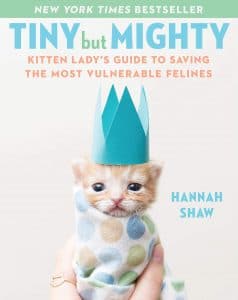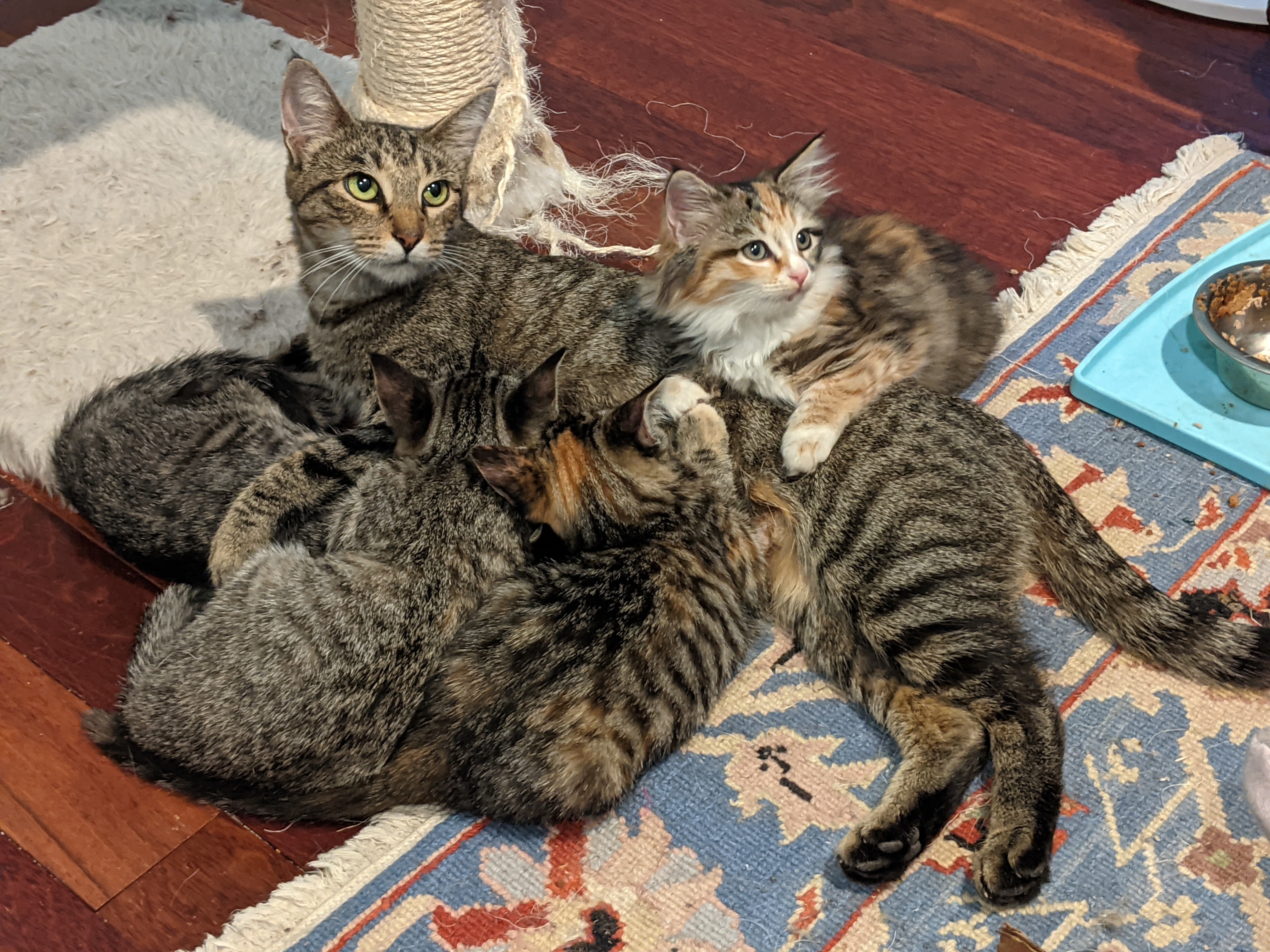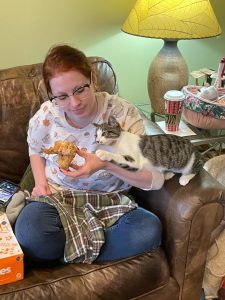 How to Advocate for and Help a Vulnerable Cat Population
How to Advocate for and Help a Vulnerable Cat Population
Author: Hannah Shaw
I’ve always loved cats, and when my husband and I finally had the space we decided to introduce some feline companions into our lives. We got four cats: two from a breeder, two from a shelter. It was an eye-opening experience, and I enjoyed adopting cats from a shelter so much that I decided to foster cats as well. When we moved to a new house we started caring for the neighborhood’s feral cats, welcoming a special feral (Garfield) with medical needs into our home. Between my fostering and my work with the ferals, I realized that I needed to learn more. And who is a better teacher than the famed Kitten Lady, Hannah Shaw?

My sweet little feral, Garfield, came to live inside in 2020. It was temporary (to care for an ear infection), but became permeant because he loved us and the indoor life. He passed early this year from cancer.
I started with Tiny But Mighty, which begins by giving an overview of the shelter situation for kittens and ferals in particular. After getting involved in fostering, I had long since moved beyond my breeders-are-ok stance (I love my purebred cats, don’t get me wrong – but once you see the need and what non-purebred cats go through, you can’t feel any other way). Kitten Lady, however, takes this general knowledge a step further, explaining first the state of shelters; they have neither the money nor the resources to meet the growing need, especially the specialized medical requirements for neonatal kittens or the social requirements of older ferals. As such, kittens and feral cats are the most euthanized, and while many well meaning people think that taking a found cat to a shelter is a good thing, it can very easily turn into a death sentence.

My fosters – Momma (Jamie) and her five kittens: Jillian, Momo, Eddie, Alice, and Ingrid. They were all adopted in pairs.
Hannah Shaw is an advocate, and she shares her own journey with us. Like many feline lovers and animal welfare advocates, she became involved incidentally. A cat – or in her case kitten – came into her life, and as she tried to help that kitten she learned. She shares her journey, always compassionate of where her readers are along their own journey and never judgmental. Shaw gives a complete and circumspect overview of the shelter situation for cats. Why do neonatal kittens need the most care and where do these especially vulnerable felines come from? She helps readers understand the situation so that they can help. Subsequent chapters give details on how to care for neonatal cats, covering everything from socializing them to dealing with deadly kitten diseases to the final goodbye as foster cat parents send their kittens out to forever homes.
As someone who is involved in fostering, but is very new and a definite “beginner”

My foster, Julie, trying to snatch some fried chicken from me. She made a best ever kitty friend when she was adopted and lives a pampered little life now.
I found Tiny But Mighty not only helpful, but encouraging. Fostering can be hard. For me in particular, it’s hard to let go, and Shaw talks about all of this and truly makes the case for caring and helping and also for practicing self-care. You can hardly care for an at risk population if you are burnt out or overwhelmed. Everything in Tiny But Mighty is practical, and there is a love and friendliness that comes through the text. Shaw’s partner, Andrew, populates the book with some glorious pictures and there are lots of stories of individual kittens used to highlight the examples Shaw gives and the advice she provides.
Tiny But Mighty is an essential guide for anyone who wants to – or might end up caring for – neonatal kittens, but it’s also a good general guide for cat care and cat fostering. This is a great place to start, and oddly enough, a fun but sobering read. It galvanizes would-be rescuers and fosters, encourages us, and helps open our eyes to the problems faced by shelters and where we are in our own dawning awareness of the problem and our place in the solution. I highly recommend this to anyone who plans to take care of neonatal animals, foster animals, or just wants to know more about animal welfare and the many ways – from fostering to ongoing advocacy – that are open to helping and rescuing the tiniest and most needy members of our community.
– Frances Carden
Follow my reviews on Twitter at: https://twitter.com/xombie_mistress
Follow my reviews on Facebook at: https://www.facebook.com/FrancesReviews
- Book Vs Movie: The Shining - April 6, 2020
- Thankful For Great Cozy Mysteries - December 13, 2019
- Cozy Mysteries for a Perfect Fall - October 20, 2019

